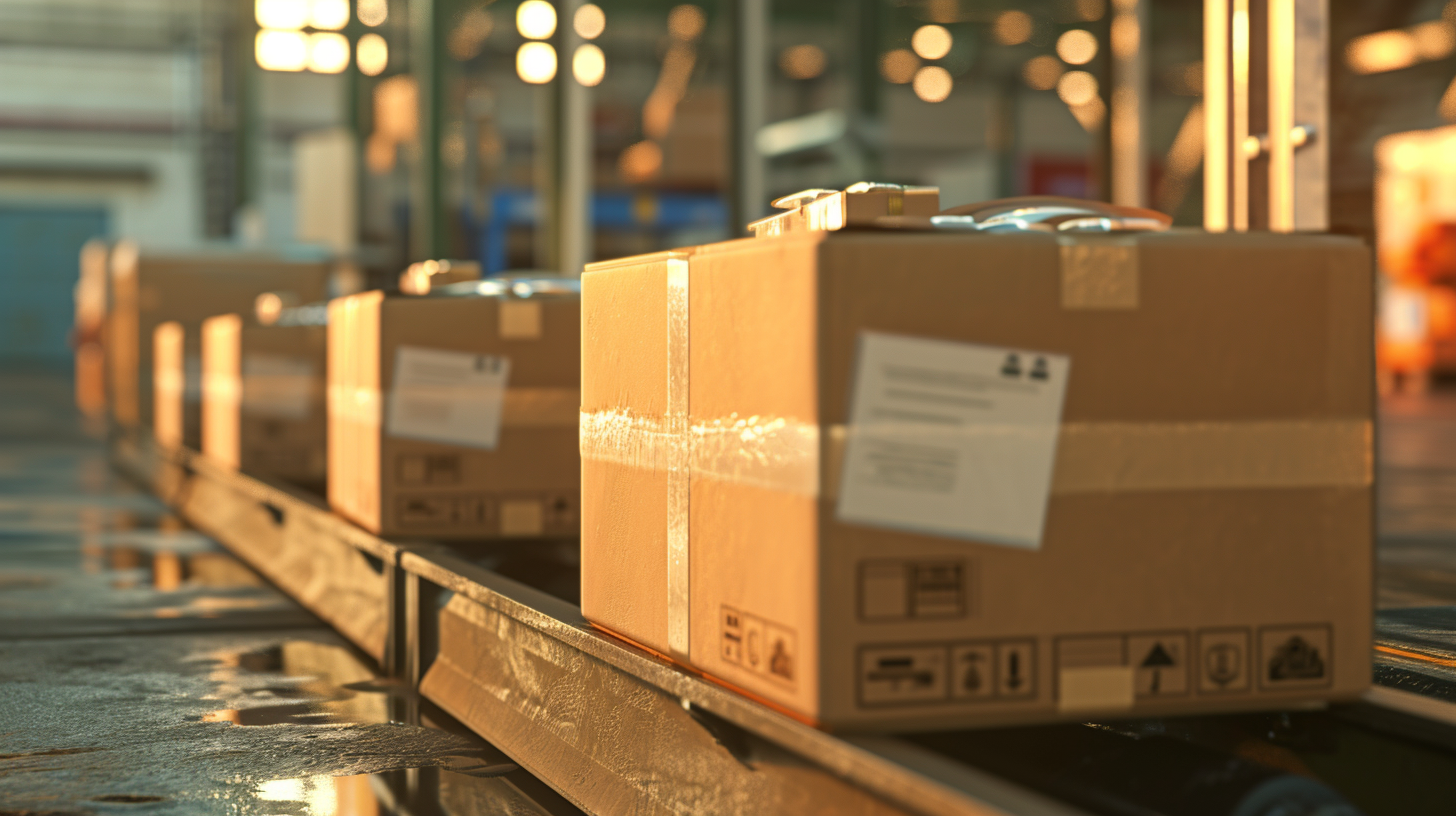Follow Us
10 Street Name, City Name
Country, Zip Code
555-555-5555
myemail@mailservice.com
What Is Cost And Freight In Shipping (CFR)
If you're new to international trade, you may have encountered the term "cost and freight" (CFR) when looking into shipping options. This shipping term is one of the most commonly used in international trade, and it's important to understand what it means and how it works.
This blog post will explain cost and freight, how they work, and what you need to know when using CFR as your shipping term.
What Are Cost And Freight?
Cost and Freight, also known as CFR, is a shipping term used in international trade to define the responsibilities and costs between the buyer and the seller. CFR is a type of Incoterm, a set of international trade terms that define the responsibilities of buyers and sellers in importing and exporting goods.
CFR is a contract between the buyer and the seller, where the seller is responsible for transporting the goods to the destination port. This means that the seller must pay for transportation and the freight charges involved in shipping the goods to the destination port.
At the destination port, the buyer is responsible for all costs associated with unloading the goods, including customs clearance, taxes, and other fees. The buyer is also responsible for any further transportation of the goods from the port of destination to their final destination.
Read More: What Does A Freight Handler Do
Benefits Of Shipping With Cost And Freight
One of the main benefits of using CFR as your shipping term is that it allows for greater flexibility in the payment process. With CFR, the buyer is not required to pay for the goods until they arrive at their destination.
This gives buyers more control over when they make payments and how much they can pay at a given time. It also allows buyers to plan their finances more effectively since they know exactly when the goods will arrive and what funds they need to have available.
The Importance Of Choosing An Experienced Shipping Company
When selecting a shipping company for your cost and freight shipments, it is important to choose one that is experienced in international trade and understands all of the Incoterms. An experienced shipping company can help ensure that all of the necessary documents are provided to the proper authorities and that the goods are shipped promptly.
When selecting a shipping company, it is important to ask about their experience with CFR shipments and any additional services they offer. It is also important to make sure that the company has insurance in place in case of delays or loss during shipment.
Read More: What Is Sea Freight And Why Use It?
How Do Cost And Freight Work?
Cost and Freight is a simple shipping term that is easy to understand. Here is a breakdown of how CFR works:
- The buyer and seller agree on the CFR shipping term in the contract.
- The seller is responsible for the cost of transportation and the freight charges to the port of destination.
- The seller arranges for the shipping of the goods to the port of destination.
- Once the goods arrive at the port of destination, the buyer is responsible for unloading the goods and paying for all customs clearance, taxes, and any other fees.
- The buyer arranges for any further transportation of the goods from the port of destination to their final destination.
It's important to note that CFR only covers the cost of transportation and freight charges up to the port of destination. Any costs associated with the further transportation of the goods to the final destination, such as inland transportation, are the responsibility of the buyer.
What Do You Need To Know About Cost And Freight?
If you're planning on using CFR as your shipping term, there are a few things you need to know to ensure a smooth transaction:
- Understand the
cost breakdown: The cost breakdown for CFR can vary depending on the specific terms of the contract. Make sure you understand who is responsible for what costs and ensure that you're comfortable with the total cost of the shipment.
- Factor in customs clearance: CFR only covers the cost of transportation and freight charges up to the port of destination. You will need to factor in the cost of customs clearance, taxes, and any other fees associated with importing the goods into your country.
- Check the shipping schedule: The seller is responsible for arranging the shipping of the goods to the port of destination. Make sure to check the shipping schedule and ensure that the goods will arrive promptly.
- Have a plan for unloading the goods: It is the buyer's responsibility to unload the goods when they arrive at the port of destination. Make sure to have a plan in place for unloading the goods and any necessary equipment to do so.
- Arrange for further transportation: CFR only covers the cost of transportation and freight charges up to the port of destination. You will need to arrange for any further transportation of the goods from the port of destination to your final destination.
Read More: What Is LTL Freight?
Questions To Ask Before Signing A Contract
When agreeing to a Cost and Freight (CFR) shipping term, there are a few key questions you should ask before signing the contract:
- Who is responsible for the cost of transportation and freight charges up to the port of destination?
- What additional fees will I be responsible for after the goods arrive at the destination port?
- What is the shipping schedule and when can I expect the goods to arrive?
- What is my plan for unloading the goods from the ship and any necessary equipment needed?
- Who is responsible for arranging further transportation of the goods from the port of destination to our final destination?
Review the contract carefully: Before signing a CFR contract, make sure you understand all of the terms and conditions outlined in the contract. Review the contract carefully and make sure that you're comfortable with all of the costs and responsibilities associated with the shipment.
Additionally, it's important to ensure that there are no hidden fees or charges that could potentially increase your total cost.
Final Words:
Before agreeing to a Cost and Freight (CFR) shipping term, make sure to consider the full scope of your responsibilities and costs associated with the shipment.
Take into account the cost of transportation and freight charges up to the port of destination, customs clearance fees, taxes, any other additional fees, and necessary equipment needed for unloading the goods. Additionally, make sure to review the shipping schedule and the contract carefully to ensure that you understand all of the terms and conditions.










